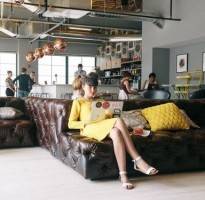June 22, 2016
Employees unconvinced about using wearables in the workplace 0
 A lack of trust is stalling the use of wearables in the workplace as people worry that their employer may use the data against them and not for their benefit. According to new PwC research, despite an estimated 3 million people in the UK buying a wearable device in 2015 – a 118 percent increase from the previous year –employees are still unconvinced about using wearables in the workplace. The research also found that two thirds (65 percent) want their employer to take an active role in their health and wellbeing, and feel that technology should be used to help them do this. But only 46 percent of people surveyed say they would accept a free piece of wearable technology if their employers had access to the data recorded. This is broadly in line with last year’s research, when 44 percent said they would take up this offer.
A lack of trust is stalling the use of wearables in the workplace as people worry that their employer may use the data against them and not for their benefit. According to new PwC research, despite an estimated 3 million people in the UK buying a wearable device in 2015 – a 118 percent increase from the previous year –employees are still unconvinced about using wearables in the workplace. The research also found that two thirds (65 percent) want their employer to take an active role in their health and wellbeing, and feel that technology should be used to help them do this. But only 46 percent of people surveyed say they would accept a free piece of wearable technology if their employers had access to the data recorded. This is broadly in line with last year’s research, when 44 percent said they would take up this offer.






























June 24, 2016
Property and workplace experts have their say on the Brexit outcome 0
by Mark Eltringham • Architecture, Comment, Facilities management, Property, Workplace, Workplace design
(more…)